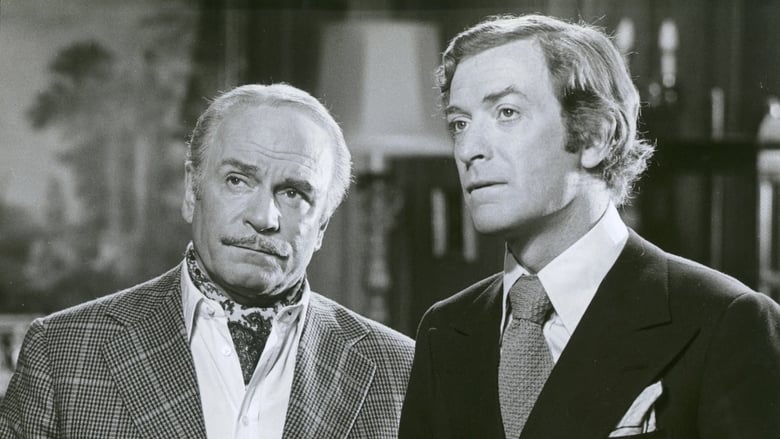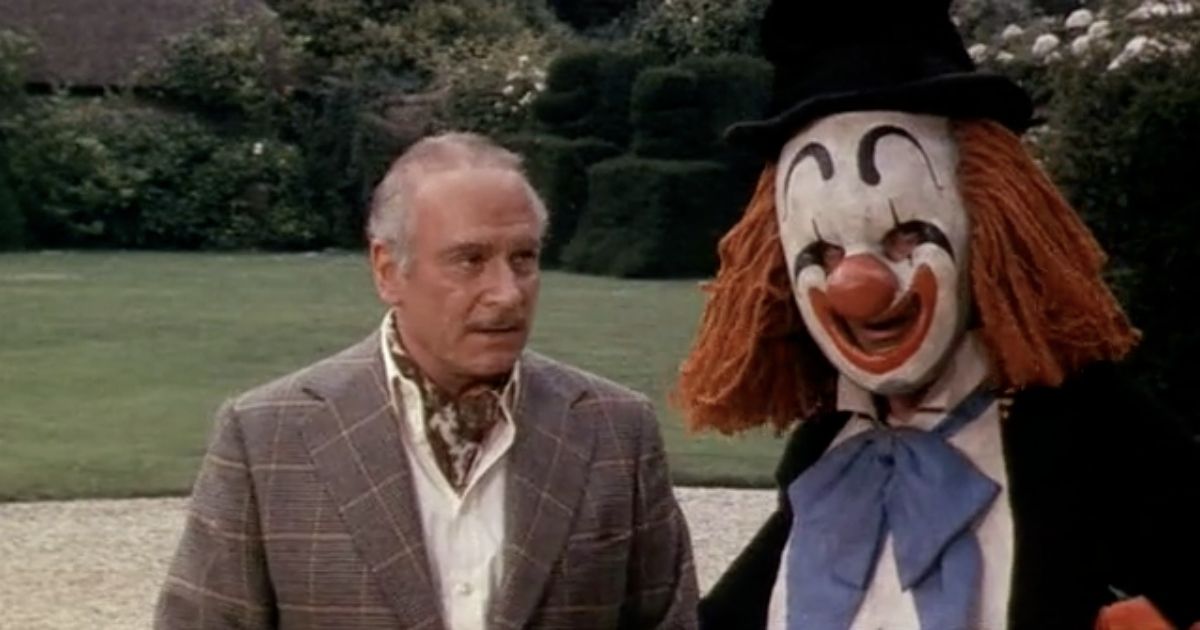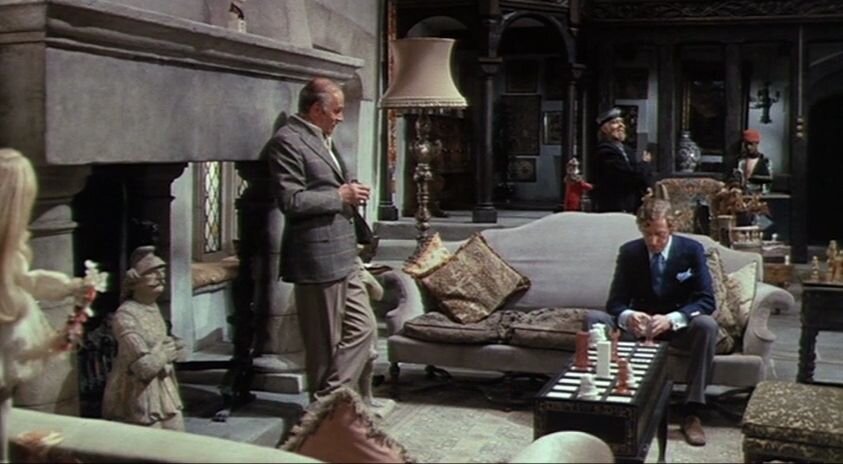← Back to Reviews

in
Sleuth (1972)
The thunderous performances by Oscar winners Laurence Olivier and Michael Caine anchor a slightly talky but sparkling comic mystery from 1972 called Sleuth which I will, to the best of my ability, attempt to review without spoilers.

Based on a play by Anthony Shaffer (Frenzy), this is the story of an eccentric writer named Andrew Wyke (Olivier), a man who enjoys theater, games, jokes, and gadgets, has arranged a meeting with Milo Tindle (Caine), a hairdresser who is having an affair with Wyke's wife, initiating a battle of wits between the two men that goes in several unexpected directions.

Shaffer's play first opened at the Music Box Theater in November of 1970 and ran for almost three years, and something tells me this piece was a lot more interesting on the stage because the single setting and the fact that there are only two characters in the story were probably a lot less distracting than they are on the screen. A single setting and only two actors onscreen set up a claustrophobic film experience that either traps the viewer or bores them to death. These traps can be dodged with the right story and the right actors in the roles.

Olivier and Caine take over the roles originated on Broadway by Anthony Quayle and Keith Baxter, not only because they are movie stars, adding to the box office appeal of the piece, though with a piece like this, I'm not convinced that making money was a priority here. Someone thought that this was such important piece of theater that the movie was released while the play was still running on Broadway.

Every time the viewer is convinced where the story is going, it moves quickly in another direction. Not only does the story move in unexpected directions, but viewer allegiance with the two characters changes from one act to the next. We know we're in for something different when Milo arrives at Wyke's estate and has to navigate a giant maze resembling the one in The Shining, to get to his host, who initially speaks to the guy through a bush before letting him in.

This film was the final directorial directorial assignment for Joseph L. Mankiewicz, who won four Oscars for writing and directing A Letter to Three Wives and 1950's Best Picture All About Eve, providing the aforementioned claustrophobic atmosphere through his supervision of superb production design, art direction, and set direction that is unparalleled, not to mention the one man acting class from Olivier that sparkles enough to keep us distracted from the fact that the film is a little longer than it needs to be. Don't sleep on Caine though, who provides constant surprises in a performance that completely disarms the viewer. Caine, Olivier, and Mankiewicz were all nominated for Oscars (Caine and Olivier lost to Marlon Brando and Mankiewicz lost to Bob Fosse), as was John Addison's superb music. If you are a fan of the 1982 Sidney Lumet film Deathtrap, you will defiitely have a head start here. The film was remade in 2007 with Caine in Olivier's role and Jude Law in Caine's.
The thunderous performances by Oscar winners Laurence Olivier and Michael Caine anchor a slightly talky but sparkling comic mystery from 1972 called Sleuth which I will, to the best of my ability, attempt to review without spoilers.

Based on a play by Anthony Shaffer (Frenzy), this is the story of an eccentric writer named Andrew Wyke (Olivier), a man who enjoys theater, games, jokes, and gadgets, has arranged a meeting with Milo Tindle (Caine), a hairdresser who is having an affair with Wyke's wife, initiating a battle of wits between the two men that goes in several unexpected directions.

Shaffer's play first opened at the Music Box Theater in November of 1970 and ran for almost three years, and something tells me this piece was a lot more interesting on the stage because the single setting and the fact that there are only two characters in the story were probably a lot less distracting than they are on the screen. A single setting and only two actors onscreen set up a claustrophobic film experience that either traps the viewer or bores them to death. These traps can be dodged with the right story and the right actors in the roles.

Olivier and Caine take over the roles originated on Broadway by Anthony Quayle and Keith Baxter, not only because they are movie stars, adding to the box office appeal of the piece, though with a piece like this, I'm not convinced that making money was a priority here. Someone thought that this was such important piece of theater that the movie was released while the play was still running on Broadway.
Every time the viewer is convinced where the story is going, it moves quickly in another direction. Not only does the story move in unexpected directions, but viewer allegiance with the two characters changes from one act to the next. We know we're in for something different when Milo arrives at Wyke's estate and has to navigate a giant maze resembling the one in The Shining, to get to his host, who initially speaks to the guy through a bush before letting him in.

This film was the final directorial directorial assignment for Joseph L. Mankiewicz, who won four Oscars for writing and directing A Letter to Three Wives and 1950's Best Picture All About Eve, providing the aforementioned claustrophobic atmosphere through his supervision of superb production design, art direction, and set direction that is unparalleled, not to mention the one man acting class from Olivier that sparkles enough to keep us distracted from the fact that the film is a little longer than it needs to be. Don't sleep on Caine though, who provides constant surprises in a performance that completely disarms the viewer. Caine, Olivier, and Mankiewicz were all nominated for Oscars (Caine and Olivier lost to Marlon Brando and Mankiewicz lost to Bob Fosse), as was John Addison's superb music. If you are a fan of the 1982 Sidney Lumet film Deathtrap, you will defiitely have a head start here. The film was remade in 2007 with Caine in Olivier's role and Jude Law in Caine's.
